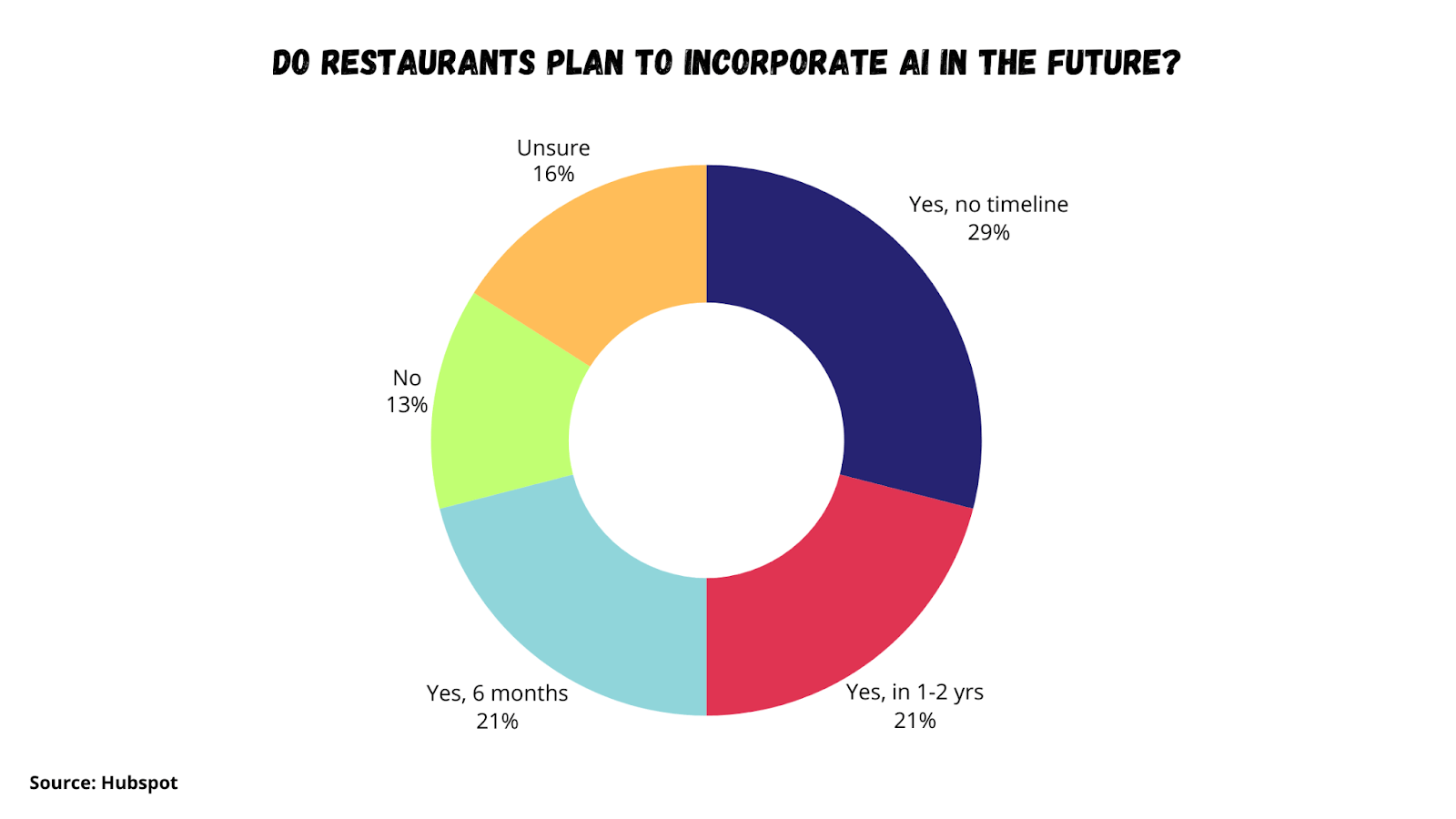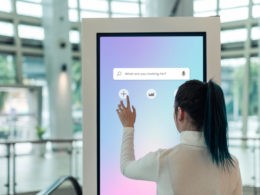Delivering exceptional customer experiences and fostering loyalty has become a paramount challenge in the hospitality industry. As consumer demands evolve, businesses are seeking innovative tactics to engage customers and keep those reservations rolling in. Enter artificial intelligence (AI), a game-changing technology revolutionizing the way hotels, restaurants, and travel companies interact with their guests.
In this blog, we’ll explore how AI is transforming the reservation process, from personalized booking experiences to seamless communication tools and data-driven predictive analytics. Get ready to uncover powerful strategies that leverage AI to anticipate customer needs, streamline operations, and build lasting relationships that encourage repeat bookings.
Understanding AI’s Role in Modern Reservation Systems
Artificial intelligence in the restaurant industry is no longer a futuristic concept; it’s a present-day reality transforming how eateries interact with guests, manage reservations, and personalize the dining experience. From chatbots and virtual assistants to predictive analytics and personalized recommendations, AI technologies are revolutionizing the way businesses engage with customers and manage reservations.
AI-driven communication tools like chatbots and virtual assistants are providing 24/7 customer service, reducing wait times and improving overall efficiency. Additionally, predictive analytics can forecast customer behavior and preferences, enabling more targeted marketing and engagement strategies.
Personalizing the Booking Experience with AI
In today’s competitive market, personalization is key to improving customer satisfaction and fostering loyalty. AI empowers businesses to analyze vast amounts of customer data, allowing them to tailor the booking experience to individual preferences.
Imagine a scenario where a hotel’s AI system recognizes a guest’s preferred room type, dietary restrictions, and past booking patterns. With this information, the hotel can curate a seamless and personalized experience, from room selection to dining recommendations and tailored amenities. This level of personalization through AI for restaurant not only enhances the guest experience but also creates a sense of emotional connection, increasing the likelihood of repeat bookings.
Enhancing Customer Interaction Through AI-Driven Communication Tools
Effective communication, anchored by innovative answering services for restaurants, is the cornerstone of exceptional customer service. AI-driven tools are revolutionizing this aspect, ensuring that every diner’s query is handled with efficiency and care, reflecting the restaurant’s commitment to superior service. This not only improves the customer experience but also allows staff to focus on more complex tasks, enhancing overall productivity.
Using Predictive Analytics to Anticipate Customer Needs
AI’s capabilities extend far beyond reactive customer service; predictive analytics empowers businesses to anticipate customer needs and preferences proactively. By analyzing historical data and identifying patterns, AI can forecast customer behavior, enabling more targeted marketing and engagement strategies.
For example, a hotel’s AI system might recognize that a guest typically books a spa package during their stay. With this insight, the hotel can send personalized offers or recommendations for spa services, enhancing the guest experience and increasing the likelihood of additional revenue opportunities.
Building Loyalty and Encouraging Repeat Bookings
The ultimate goal of any business is to foster customer loyalty and encourage repeat bookings. AI plays a crucial role in achieving this objective by enabling personalized loyalty programs and incentives tailored to individual customer behaviors.
For instance, an AI system might recognize that a guest frequently books a particular suite during their stay. In response, the hotel could offer a personalized loyalty program that provides exclusive discounts or upgrades for that specific suite, incentivizing the guest to continue booking with the same hotel.
Additionally, AI can gather and analyze feedback, enabling continuous improvement and personalized follow-up communications. By addressing concerns and acknowledging positive experiences, businesses can strengthen their relationships with customers, increasing the likelihood of repeat bookings.
The Future of AI in Reservations Management

The future of AI in reservations management is bright, with emerging technologies promising to further revolutionize customer engagement and operational efficiency. AI telephony, for instance, combines natural language processing with voice recognition, enabling seamless and intuitive voice-based customer interactions.
Additionally, AI-powered recommendations are poised to become even more sophisticated, taking into account not only customer preferences but also external factors like weather, events, and social media trends. This level of personalization will enable businesses to deliver truly tailored experiences that exceed customer expectations.
As these technologies continue to evolve, businesses that embrace AI and stay ahead of the curve will be well-positioned to thrive in the competitive hospitality market.
Comparison Table: Traditional Reservation Systems vs. AI-Powered Reservation Systems
| Aspect | Traditional Reservation Systems | AI-Powered Reservation Systems |
| Customer Interaction | Limited to business hours, prone to delays | 24/7 availability, instant responses through chatbots and virtual assistants |
| Personalization | One-size-fits-all approach | Tailored experiences based on customer data and preferences |
| Data Analysis | Manual analysis, limited insights | Predictive analytics, real-time data processing, and insights |
| Operations Management | Manual pricing and inventory management | Dynamic pricing, automated inventory optimization |
| Loyalty Programs | Generic programs, limited personalization | Personalized loyalty programs based on customer behavior |
| Customer Feedback | Limited collection and analysis | Continuous feedback collection and analysis for improvement |
| Scalability | Limited by human resources | Highly scalable, able to handle increasing demand |
| Cost | Higher operational costs due to manual processes | Lower operational costs due to automation and efficiency |
This comparison table highlights the stark differences between traditional reservation systems and AI-powered systems, illustrating the numerous advantages AI offers in terms of customer engagement, operational efficiency, and cost savings.
Frequently Asked Questions
1. How can small businesses implement AI in their reservation systems without a significant upfront investment?
Small businesses can leverage cost-effective, cloud-based AI solutions that offer scalable and flexible pricing models, such as pay-as-you-go or subscription-based plans. Many vendors also offer free trials or entry-level packages, allowing businesses to test and evaluate AI technologies before committing to a larger investment.
2. What measures can be taken to ensure customer data privacy and security when using AI?
Ensuring customer data privacy and security should be a top priority when implementing AI. Best practices include: implementing robust data encryption and access controls, conducting regular security audits and vulnerability assessments, providing transparency about data collection and usage practices, complying with relevant data privacy regulations like GDPR and CCPA, and partnering with reputable AI vendors with proven track records in data security.
3. How do we balance AI automation with maintaining a personal touch in customer service?
Striking the right balance between AI automation and human interaction is crucial. Strategies include a hybrid approach leveraging AI for routine tasks and human agents for complex situations, using AI for personalization while ensuring human touch when needed, providing empathy training to agents, and transparent communication about AI vs human interactions. Finding this balance allows leveraging AI efficiency while maintaining a valued personal touch.
Conclusion
Embracing AI is key to delivering exceptional customer experiences, fostering loyalty, and driving revenue in the competitive hospitality industry. By integrating AI-driven communication tools, personalization, predictive analytics, and operational efficiencies, businesses can engage customers, anticipate needs, and encourage repeat bookings. However, navigating data privacy, maintaining the human touch, and continuous adaptation are crucial for successful AI adoption and staying ahead of the curve.












